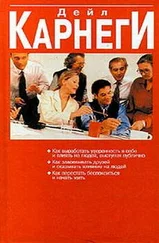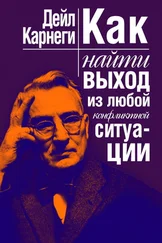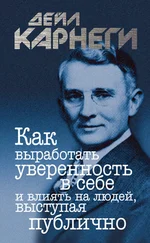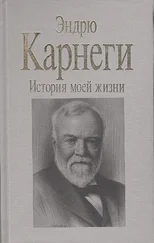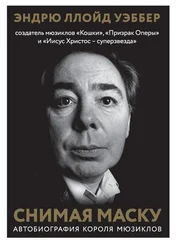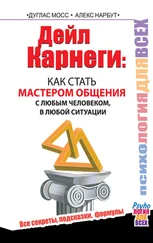Эндрю Карнеги - Autobiography of Andrew Carnegie
Здесь есть возможность читать онлайн «Эндрю Карнеги - Autobiography of Andrew Carnegie» — ознакомительный отрывок электронной книги совершенно бесплатно, а после прочтения отрывка купить полную версию. В некоторых случаях можно слушать аудио, скачать через торрент в формате fb2 и присутствует краткое содержание. Жанр: Биографии и Мемуары, foreign_antique, на английском языке. Описание произведения, (предисловие) а так же отзывы посетителей доступны на портале библиотеки ЛибКат.
- Название:Autobiography of Andrew Carnegie
- Автор:
- Жанр:
- Год:неизвестен
- ISBN:нет данных
- Рейтинг книги:3 / 5. Голосов: 1
-
Избранное:Добавить в избранное
- Отзывы:
-
Ваша оценка:
- 60
- 1
- 2
- 3
- 4
- 5
Autobiography of Andrew Carnegie: краткое содержание, описание и аннотация
Предлагаем к чтению аннотацию, описание, краткое содержание или предисловие (зависит от того, что написал сам автор книги «Autobiography of Andrew Carnegie»). Если вы не нашли необходимую информацию о книге — напишите в комментариях, мы постараемся отыскать её.
Autobiography of Andrew Carnegie — читать онлайн ознакомительный отрывок
Ниже представлен текст книги, разбитый по страницам. Система сохранения места последней прочитанной страницы, позволяет с удобством читать онлайн бесплатно книгу «Autobiography of Andrew Carnegie», без необходимости каждый раз заново искать на чём Вы остановились. Поставьте закладку, и сможете в любой момент перейти на страницу, на которой закончили чтение.
Интервал:
Закладка:
An incident happened on this trip which might have blasted my career for a time. I started next morning for Pittsburgh with the pay-rolls and checks, as I thought, securely placed under my waistcoat, as it was too large a package for my pockets. I was a very enthusiastic railroader at that time and preferred riding upon the engine. I got upon the engine that took me to Hollidaysburg where the State railroad over the mountain was joined up. It was a very rough ride, indeed, and at one place, uneasily feeling for the pay-roll package, I was horrified to find that the jolting of the train had shaken it out. I had lost it!
There was no use in disguising the fact that such a failure would ruin me. To have been sent for the pay-rolls and checks and to lose the package, which I should have "grasped as my honor," was a dreadful showing. I called the engineer and told him it must have been shaken out within the last few miles. Would he reverse his engine and run back for it? Kind soul, he did so. I watched the line, and on the very banks of a large stream, within a few feet of the water, I saw that package lying. I could scarcely believe my eyes. I ran down and grasped it. It was all right. Need I add that it never passed out of my firm grasp again until it was safe in Pittsburgh? The engineer and fireman were the only persons who knew of my carelessness, and I had their assurance that it would not be told.
It was long after the event that I ventured to tell the story. Suppose that package had fallen just a few feet farther away and been swept down by the stream, how many years of faithful service would it have required upon my part to wipe out the effect of that one piece of carelessness! I could no longer have enjoyed the confidence of those whose confidence was essential to success had fortune not favored me. I have never since believed in being too hard on a young man, even if he does commit a dreadful mistake or two; and I have always tried in judging such to remember the difference it would have made in my own career but for an accident which restored to me that lost package at the edge of the stream a few miles from Hollidaysburg. I could go straight to the very spot to-day, and often as I passed over that line afterwards I never failed to see that light-brown package lying upon the bank. It seemed to be calling:
"All right, my boy! the good gods were with you, but don't do it again!"
At an early age I became a strong anti-slavery partisan and hailed with enthusiasm the first national meeting of the Republican Party in Pittsburgh, February 22, 1856, although too young to vote. I watched the prominent men as they walked the streets, lost in admiration for Senators Wilson, Hale, and others. Some time before I had organized among the railroad men a club of a hundred for the "New York Weekly Tribune," and ventured occasionally upon short notes to the great editor, Horace Greeley, who did so much to arouse the people to action upon this vital question.
The first time I saw my work in type in the then flaming organ of freedom certainly marked a stage in my career. I kept that "Tribune" for years. Looking back to-day one cannot help regretting so high a price as the Civil War had to be paid to free our land from the curse, but it was not slavery alone that needed abolition. The loose Federal system with State rights so prominent would inevitably have prevented, or at least long delayed, the formation of one solid, all-powerful, central government. The tendency under the Southern idea was centrifugal. To-day it is centripetal, all drawn toward the center under the sway of the Supreme Court, the decisions of which are, very properly, half the dicta of lawyers and half the work of statesmen. Uniformity in many fields must be secured. Marriage, divorce, bankruptcy, railroad supervision, control of corporations, and some other departments should in some measure be brought under one head. [Re-reading this paragraph to-day, July, 1907, written many years ago, it seems prophetic. These are now burning questions.]
It was not long after this that the railroad company constructed its own telegraph line. We had to supply it with operators. Most of these were taught in our offices at Pittsburgh. The telegraph business continued to increase with startling rapidity. We could scarcely provide facilities fast enough. New telegraph offices were required. My fellow messenger-boy, "Davy" McCargo, I appointed superintendent of the telegraph department March 11, 1859. I have been told that "Davy" and myself are entitled to the credit of being the first to employ young women as telegraph operators in the United States upon railroads, or perhaps in any branch. At all events, we placed girls in various offices as pupils, taught and then put them in charge of offices as occasion required. Among the first of these was my cousin, Miss Maria Hogan. She was the operator at the freight station in Pittsburgh, and with her were placed successive pupils, her office becoming a school. Our experience was that young women operators were more to be relied upon than young men. Among all the new occupations invaded by women I do not know of any better suited for them than that of telegraph operator.
Mr. Scott was one of the most delightful superiors that anybody could have and I soon became warmly attached to him. He was my great man and all the hero worship that is inherent in youth I showered upon him. I soon began placing him in imagination in the presidency of the great Pennsylvania Railroad—a position which he afterwards attained. Under him I gradually performed duties not strictly belonging to my department and I can attribute my decided advancement in the service to one well-remembered incident.
The railway was a single line. Telegraph orders to trains often became necessary, although it was not then a regular practice to run trains by telegraph. No one but the superintendent himself was permitted to give a train order on any part of the Pennsylvania system, or indeed of any other system, I believe, at that time. It was then a dangerous expedient to give telegraphic orders, for the whole system of railway management was still in its infancy, and men had not yet been trained for it. It was necessary for Mr. Scott to go out night after night to break-downs or wrecks to superintend the clearing of the line. He was necessarily absent from the office on many mornings.
One morning I reached the office and found that a serious accident on the Eastern Division had delayed the express passenger train westward, and that the passenger train eastward was proceeding with a flagman in advance at every curve. The freight trains in both directions were all standing still upon the sidings. Mr. Scott was not to be found. Finally I could not resist the temptation to plunge in, take the responsibility, give "train orders," and set matters going. "Death or Westminster Abbey," flashed across my mind. I knew it was dismissal, disgrace, perhaps criminal punishment for me if I erred. On the other hand, I could bring in the wearied freight-train men who had lain out all night. I could set everything in motion. I knew I could. I had often done it in wiring Mr. Scott's orders. I knew just what to do, and so I began. I gave the orders in his name, started every train, sat at the instrument watching every tick, carried the trains along from station to station, took extra precautions, and had everything running smoothly when Mr. Scott at last reached the office. He had heard of the delays. His first words were:
"Well! How are matters?"
He came to my side quickly, grasped his pencil and began to write his orders. I had then to speak, and timidly said:
"Mr. Scott, I could not find you anywhere and I gave these orders in your name early this morning."
"Are they going all right? Where is the Eastern Express?"
I showed him the messages and gave him the position of every train on the line—freights, ballast trains, everything—showed him the answers of the various conductors, the latest reports at the stations where the various trains had passed. All was right. He looked in my face for a second. I scarcely dared look in his. I did not know what was going to happen. He did not say one word, but again looked carefully over all that had taken place. Still he said nothing. After a little he moved away from my desk to his own, and that was the end of it. He was afraid to approve what I had done, yet he had not censured me. If it came out all right, it was all right; if it came out all wrong, the responsibility was mine. So it stood, but I noticed that he came in very regularly and in good time for some mornings after that.
Читать дальшеИнтервал:
Закладка:
Похожие книги на «Autobiography of Andrew Carnegie»
Представляем Вашему вниманию похожие книги на «Autobiography of Andrew Carnegie» списком для выбора. Мы отобрали схожую по названию и смыслу литературу в надежде предоставить читателям больше вариантов отыскать новые, интересные, ещё непрочитанные произведения.
Обсуждение, отзывы о книге «Autobiography of Andrew Carnegie» и просто собственные мнения читателей. Оставьте ваши комментарии, напишите, что Вы думаете о произведении, его смысле или главных героях. Укажите что конкретно понравилось, а что нет, и почему Вы так считаете.

